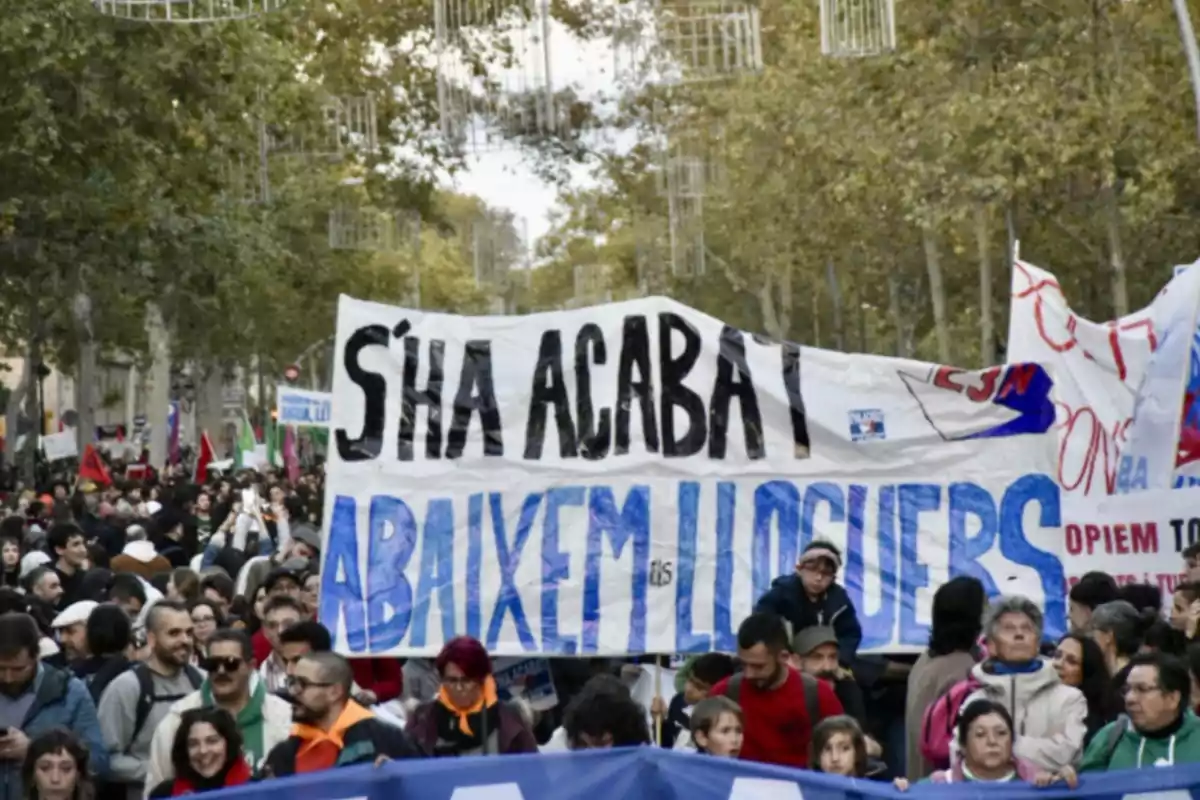
The entity linked to Sindicat de Llogateres received €1.15M in subsidies.
In addition to boosting political careers, the activism industry in Catalonia is very profitable
The Institut de Recerca Urbana de Barcelona (IDRA), a research group linked to the Sindicat de Llogateres, has received a total of 1,154,110.8 euros in public grants since December 2021. This is confirmed by a resolution from the Ministry of Finance obtained through the Transparency Portal, as reported by The Objective.
The aid comes from three public administrations: the central Government, Generalitat de Catalunya, and the Barcelona City Council. Most of the funding (916,681.32 euros) comes from Generalitat.

These grants are distributed in various calls, highlighting the 679,985 euros awarded for "Subvenciones a les Comunalidades Urbanas" and the 66,217 euros from the Next Generation EU funds. Other amounts include aid for unique projects, technological innovation programs, and "social and solidarity economy."
Meanwhile, Barcelona City Council contributed 57,400 euros in aid for social projects and local economic promotion. Finally, the State contributed 180,029.48 euros, which include funds for the Digital Kit Program and international collaboration projects.
the quarry of the Catalan 'woke' left
IDRA is an institute that defines itself as a think tank and federated cooperative. Its work focuses on promoting "social and ecological justice" through research and collaboration with social actors. It keeps a close relationship with Sindicat de Llogateres, which is the new flagship of the Comuns.
This connection is reinforced by the participation in IDRA of prominent members of the union, such as Jaime Palomera and Carme Alcarazo, who also serve as spokesperson and technician in both entities. This endogamous dynamic is very common in the network of subsidized progressive entities in Catalonia. It is a feedback system between social sciences faculties, political parties, and subsidized entities. The situation with DGAIA is another clear example of this reality.
In the case of housing, the social and political maneuver that the Catalan 'woke' left is currently crafting is clear. It is about reversing their decline through the capitalization of the real estate problem, which in places like Barcelona is pressing. Furthermore, it is worth noting that all these activism elites come from the upper echelons of the Catalan capital.

back to 2008
This context is reminiscent of the 2008 mortgage crisis, when PAH and Ada Colau were protagonists in social and political mobilization. Currently, unions like Sindicat de Llogateres represent a second wave of activism. This time, they focus on the rental market with speeches that denounce "large holders," "vulture funds," and "speculators" as responsible.
However, the diagnosis of the housing crisis is full of nuances. Most of the real estate stock is in the hands of individuals, and only a small percentage corresponds to investment funds. Additionally, the shortage of supply is exacerbated by demographic factors, such as population growth linked to immigration, which increases demand.
This is crucial to understand that public funding for this type of entity has a more political than economic (or even social) return. In other words, it is another element of political confrontation to capture the dominant narratives, which is done in continuity with the subsidized press. The proof is that groups like Sindicat de Llogateres do not live off their private income but from public funding.
More posts: